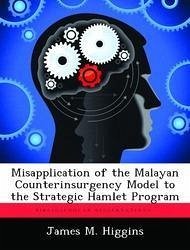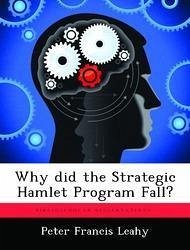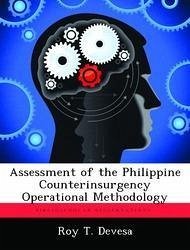
Misapplication of the Malayan Counterinsurgency Model to the Strategic Hamlet Program
Versandkostenfrei!
Versandfertig in über 4 Wochen
52,99 €
inkl. MwSt.
Weitere Ausgaben:

PAYBACK Punkte
26 °P sammeln!
The strategic hamlet program in Vietnam was destined to failure because of a misapplication of the Malayan counterinsurgency model. The ethnic composition of the population, the nature of the insurgency, and the inherent capabilities of the bureaucracy created a unique set of conditions in Malaya. These conditions allowed the British colonial government to implement an effective counterinsurgency strategy that isolated the guerrillas. The focus of the strategy was the resettlement of the rural population away from the jungle. The South Vietnamese and their American and British advisers misappl...
The strategic hamlet program in Vietnam was destined to failure because of a misapplication of the Malayan counterinsurgency model. The ethnic composition of the population, the nature of the insurgency, and the inherent capabilities of the bureaucracy created a unique set of conditions in Malaya. These conditions allowed the British colonial government to implement an effective counterinsurgency strategy that isolated the guerrillas. The focus of the strategy was the resettlement of the rural population away from the jungle. The South Vietnamese and their American and British advisers misapplied the Malayan strategy in the implementation of the strategic hamlet program. The program was designed to isolate the rural Vietnamese from the Viet Cong. The authorities, however, failed to understand how the conditions in South Vietnam differed from Malaya. The impact of these differences destined the program to failure. This thesis draws from primary sources written by personnel who were involved in both counterinsurgencies. It also outlines lessons learned from the misapplication that may be applied to future operations.














